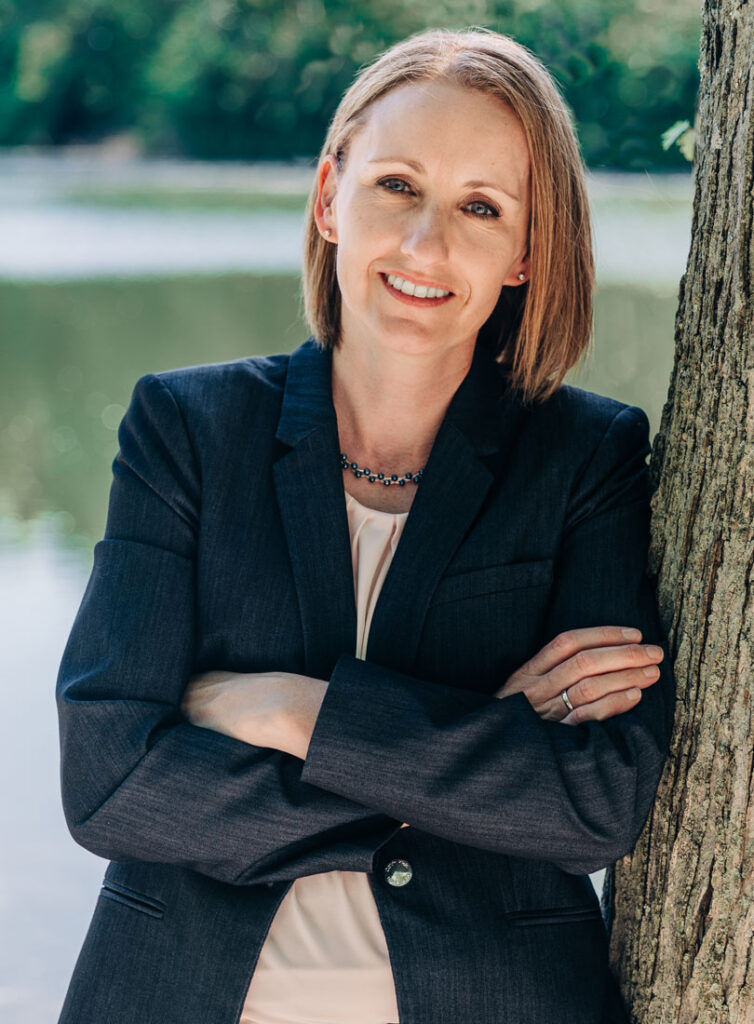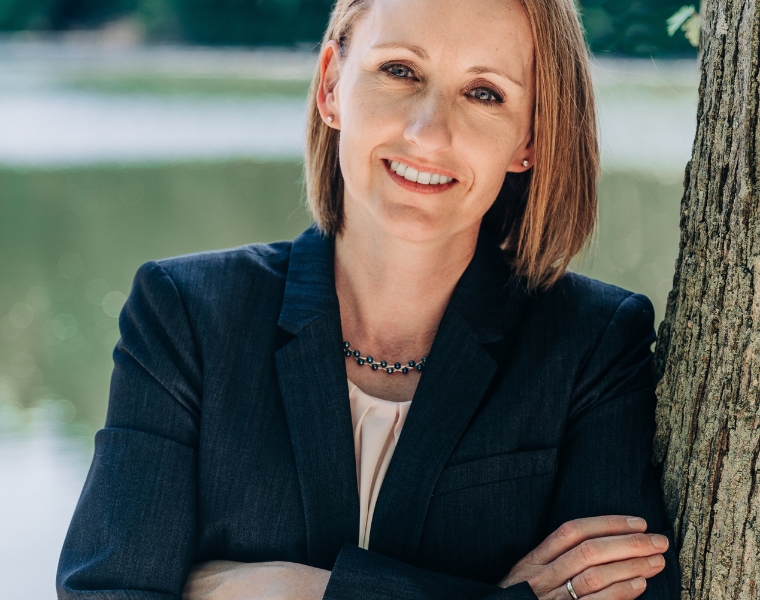Behind the work that takes place in labs, offices and classrooms across Case Western Reserve University’s campus, there are more than 3,000 staff members helping to make it happen. Whether it’s connecting students with opportunities to help them succeed or making sure common spaces are clean and safe, staff members are integral to achieving the university’s mission. In honor of Employee Appreciation Day, celebrated at the university March 10, we’re showing our gratitude by highlighting just a few of the outstanding staff members at CWRU.

At Case Western Reserve University and Cleveland Clinic’s Health Education Campus, students across healthcare programs take a team-based approach to learning—one designed to ensure they graduate with the skills to make an impact in interprofessional settings. Jean Seneff, director of academic administration for the Health Education Campus, plays a key role in making that happen.
Housed in the Office of Interprofessional and Interdisciplinary Education and Research, Seneff’s role involves working with a team of faculty and staff members to develop curriculum, and other experiences for teams of students in Collaborative Practice I classes. In addition, she oversees building operations at the Health Education Campus. Seneff started working at Case Western Reserve in 2007, serving the university in various capacities, until she landed in her current position in 2019.
“I consider myself a lifelong learner, and being in a learning environment is very rewarding,” said Seneff, who was born and raised in Dublin, Ireland. “Not only do I get to contribute and help others learn, but I am also learning from the minds and ideas of the faculty, staff and students I work with every day, hopefully to solve problems that benefit society in a variety of ways.”
In addition to gaining insights from those around her, Seneff has formalized her learning experiences at CWRU. In 2017, she earned a Master of Science in Positive Organization Development and Change (MPOD) degree from Weatherhead School of Management; she is currently enrolled in the part-time Master of Business Administration program.
We spoke with Seneff to learn more about her work supporting collaboration amongst students at the Health Education Campus. See what she had to say.
Answers have been lightly edited for clarity and length.
1.How would you describe the mission of the Office of Interprofessional and Interdisciplinary Education and Research?
Our mission is to help CWRU faculty, staff and students as well as our affiliate partners to achieve higher impact through effective teamwork. It is estimated that at least 85% of work is completed in teams. Teamwork and collaboration are consistently identified as one of the most essential skills that employees need according to the National Association of Colleges and Employers Job Outlook annual survey. Despite the prevalence of teams throughout all areas of work, very few people receive formal instruction on how to be more effective in their teamwork efforts.
Our office seeks to address this gap by offering formal coursework on teamwork skills, sponsoring network-building interdisciplinary and interprofessional events, and providing team consultation and coaching services.
2. What is a typical day like?
My days are very busy! My mornings typically involve responding to emails/requests around use of space at HEC and building operations. I’m also meeting with faculty, staff and students across different schools and programs related to a variety of activities ranging from academic classes to student group activities and other events at HEC.
I’m also working with my team on different programming that we put on, such as our Interprofessional Dialogues series. I serve as a team coach for our student teams in Collaborative Practice I, and so I am often reviewing team assessments and coaching teams related to their strengths and opportunities for improvement.
3. How do you feel you utilize your graduate training from Weatherhead in your current position?
I utilize my MPOD training in many ways, especially on the people side of things in the areas of inclusive leadership, team effectiveness and emotional intelligence. I believe it has helped me build stronger professional relationships, which is so important when working with diverse groups across all professions. Richard Boyatzis’ Intentional Change Theory has not only been instrumental in my own personal growth, but also informs how I coach individuals and teams. My MBA training has broadened my knowledge on the business side in the areas of strategy, lean service operations, and executive leadership. All of which I use in my current role.


